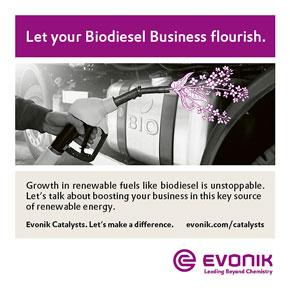Sustainable and scalable supplies

The Italian Prime Minister Giorgia Meloni was the most recent to say that the ban makes no sense and the Italian government will work to correct it, as it could be argued that the EU green transition has been pursued at the cost of sacrificing entire production sectors, such as the automotive industry.
During the forthcoming tenure of the new EU institutions, the narrative is shifting. The post-covid energy crisis intensified following the Russian invasion into Ukraine and hit the EU severely leading to a cost-of-living crisis that impacted the wealth of the average European citizen.
In the face of this, and a fear of extreme right political parties gaining ground primarily in Germany, France and other Member States, the focus is shifting towards European competitiveness, industrial rebirth, reducing our reliance on foreign supply chains and even changing our demand patterns to reduce overall consumption.
However, the unified message is loud and clear. Europe needs to protect and strengthen its industrial powerhouses, rebrand the once powerful “Made in the EU”, invest in reindustrialising its economy and diversify its energy sources to protect its citizens from energy security related issues.
Decarbonisation goals
The European biofuels sector is echoing such voices and has significant capacity to provide additional support to the decarbonisation of hard to abate sectors like the HDV industry. Already, 88% of renewables in transport come from biofuels, achieving considerable emission reductions.
However, there should be no limitation on the level of bio blends (aka B+) used in diesel-engined transport, especially long haulage transportation that barely incorporates 5% of renewable fuel currently, the remaining being fossil diesel.
It is essential for policymakers to craft an inclusive policy incentive scheme that will promote all sustainable solutions available including the use of higher biofuel blends to reduce GHG emissions with immediate effect.
While the efforts to achieve zero emissions must be pursued in the medium to long-term, the potential for higher biofuel blends to contribute to the decarbonisation of all remaining internal combustion engines in heavy duty vehicles is huge.
With national projections across the EU showing these HDVs will be on the roads in considerable numbers as far out as 2040 and beyond, there is an urgent need for an ambitious, technology-neutral mechanisms to drive more de-fossilisation of the ICE fleets with high-blends of biodiesel.
Thanks to biodiesel, every car, van, truck, and ship can immediately contribute to the European decarbonisation policy objectives.
The Heavy-Duty Vehicles (HDV) sector, however, is one of the hardest sectors to decarbonise, therefore B+ provides a huge opportunity for increasing GHG reductions four-fold simply by using standard high blends such as B20 (20% biodiesel into diesel blend), and higher.
B+ is the European initiative to maximise decarbonisation in in Heavy Duty Vehicles (HDV) with higher blends of biodiesel (FAME) and renewable diesel (HVO).
The B+ wider initiative was instigated by the European Biodiesel Board (EBB), the European Waste-based & Advanced Biofuels Association (EWABA) and Portuguese Waste Bioenergy Association (ABA) in April 2023.
The overall objective is to effect the demand for high blends use in HDVs through national/regional incentive mechanisms by mid-2027. The higher blends uptake at stake could be achieved mainly by:
• raising awareness among HDV industry stakeholders on the business case for higher blends to reach their GHG reduction/renewable obligations (national, EU, scope III, corporate);
• raising awareness among national authorities on the cost-effectiveness of high blends and the case for its significant contribution to difficult to decarbonise road vehicles
• educating fleet operators on different types of biodiesel, compatibility with engines, comparative costs and sustainability credentials;
• designing and implementing incentive support mechanisms for fleet operators adopting B+;
• gaining EU-wide recognition on the benefits it overall achieves for heavy transport decarbonisation.
Following the successful European B+ Summit last year in Portugal, the group is organising the 2nd European B+ Summit in the first half of 2025 with high ambition for an even greater participation.
The overall objective is to co-host a series of national policy events throughout Europe to bring B+ into the agenda and showcase its significance for the EU’s economy and transport fuel mix.
As part of the B+ agenda, the Dutch waste biodiesel alliance NBAA hosted a ‘B+ Netherlands’ symposium in June this year with a range of speakers and a room full of interested participants in the heart of The Hague.
Expect to see other regional B+ initiatives in Member States as stakeholders align to find ways of exploiting B+.
Regulation
On the regulatory front, high biofuel blends for the road sector are not currently supported by any EU-wide policy framework.
On the contrary, the Fuel Quality Directive (FQD) sets a very tangible obstacle to the deployment of >10% blends. The latest amendment to the FQD, while increasing the maximum FAME blend from 7% to 10%, has suppressed a flexibility clause that allowed for the commercialisation of higher blends over the legal maximum.
Moreover, a new regulation for CO2 Standards for Heavy Duty Vehicles adopted in mid-April this year placed an obligation for manufacturers to reduce emissions based only on tailpipe emissions.
More specifically, the obligation to reduce average fleet emissions of new heavy-duty vehicles by 45% in 2030 and up to 90% in 2040 are reachable only via electromobility.
This blatantly means that renewable fuels are not recognised as there is no lifecycle assessment to measure and compare the full life cycle emissions of biofuels, e-fuels and other renewable fuels compared to electric vehicles.
Once again, the ‘zero emission’ narrative adopted by the European Commission is killing European industry to promote a sector (i.e. EVs) that is clearly not ready and not at the scale we need to support full grid electrification and efficient and safe transportation of goods and services across the European bloc.
Apart from our main ambition to trigger B+ demand by affecting national regulations across Member States, the aim is to include renewable fuels according to RED II sustainability criteria via different mechanisms such as: i) carbon correction factor, ii) vehicles running exclusively on CO2 neutral fuels or on mixtures of such fuels, and/or iii) a voluntary crediting mechanism.
Following intense industry consultations with relevant stakeholders, the European Commission agreed within a year from entry into force of the regulation, to assess the role of a methodology for registering HDV exclusively running on CO2 neutral fuels. This is where the role of the Stuttgart Group could be instrumental.
The Working Group on Monitoring Methodologies for CO2 neutral fuels encompassing 50+ industry stakeholders, also known as the Stuttgart Group, was set up in September 2023 to support the legislators in developing a proposal for registering vehicles running permanently on CO2 neutral fuels in conformity with EU law and the Renewable Energy Directive sustainability criteria.
To contribute to this effort, the industry-led Stuttgart Group aims to provide the European Commission with a comprehensive report of all potential mechanical and digital solutions for monitoring the use of CO2 neutral fuels in new vehicles by December 2024. The scope of this work encompasses the whole road transport sector (LDVs, HDVs, off-road). As the deadline for the Commission for the methodology for HDVs is in April 2025, the work of the Group will be very important.
The biofuels industry is actively participating in the work of the Stuttgart Working Group, represented in the Steering Group, with EWABA and EBB chairing and co-chairing respectively the Sub-Group on Fuel Production & Fuel Definition.
As a reminder, the use of biofuel in the road transport sector has been limited for more than a decade at B7 (7% biodiesel content).
Recently B10 was included in the RED revision (REDIII) as an alternative option at fuel pumps (transposition by Member States is still ongoing), albeit keeping the B7 blend as a protection grade.
The EU should avoid mistakes of the past. There must not be reliance on ‘silver’ bullets any longer. No more time should be wasted when there is already sustainable and scalable supplies to decarbonise transport today, thanks entirely to the ambitious incentives from the EU.
Businesses should not risk losing the existing and planned investments in an EU-made industry supporting thousands of EU citizens and 100+ production facilities across Europe, close to agriculture in rural and remote communities.
Let’s not underutilise what Europe has to offer. Let’s enhance fuel supplies and look ahead with more optimism. Use what’s available today and simultaneously invest in the future fuels of tomorrow.
For more information: This article was put together by Dickon Posnett, NBAA Chairman. The NBAA is an alliance of five waste-based biodiesel producers with a production site or facility in the Netherlands that cooperates closely with European industry associations for waste-based biodiesel. Visit biodieseluitafval.nl/en/













